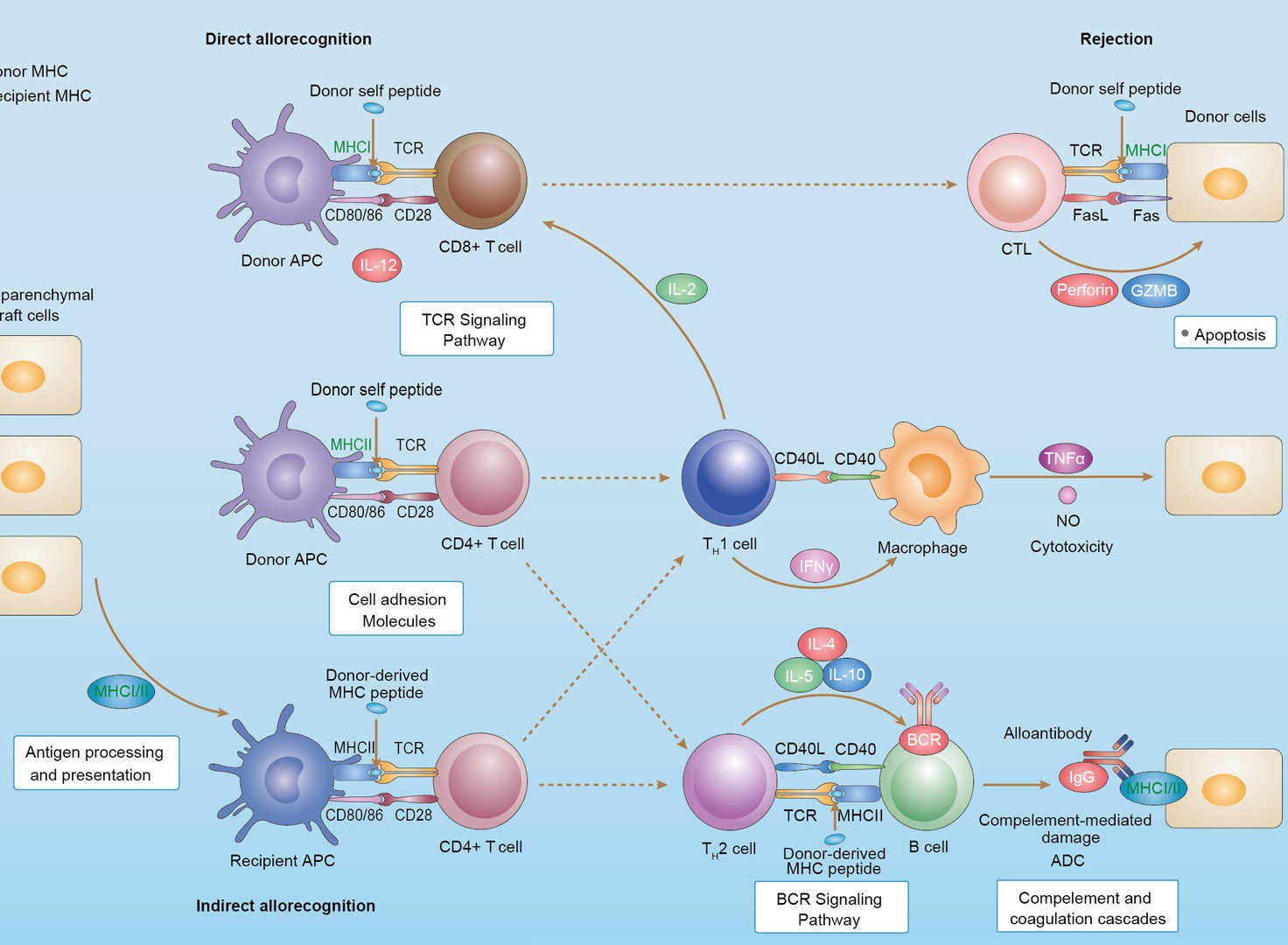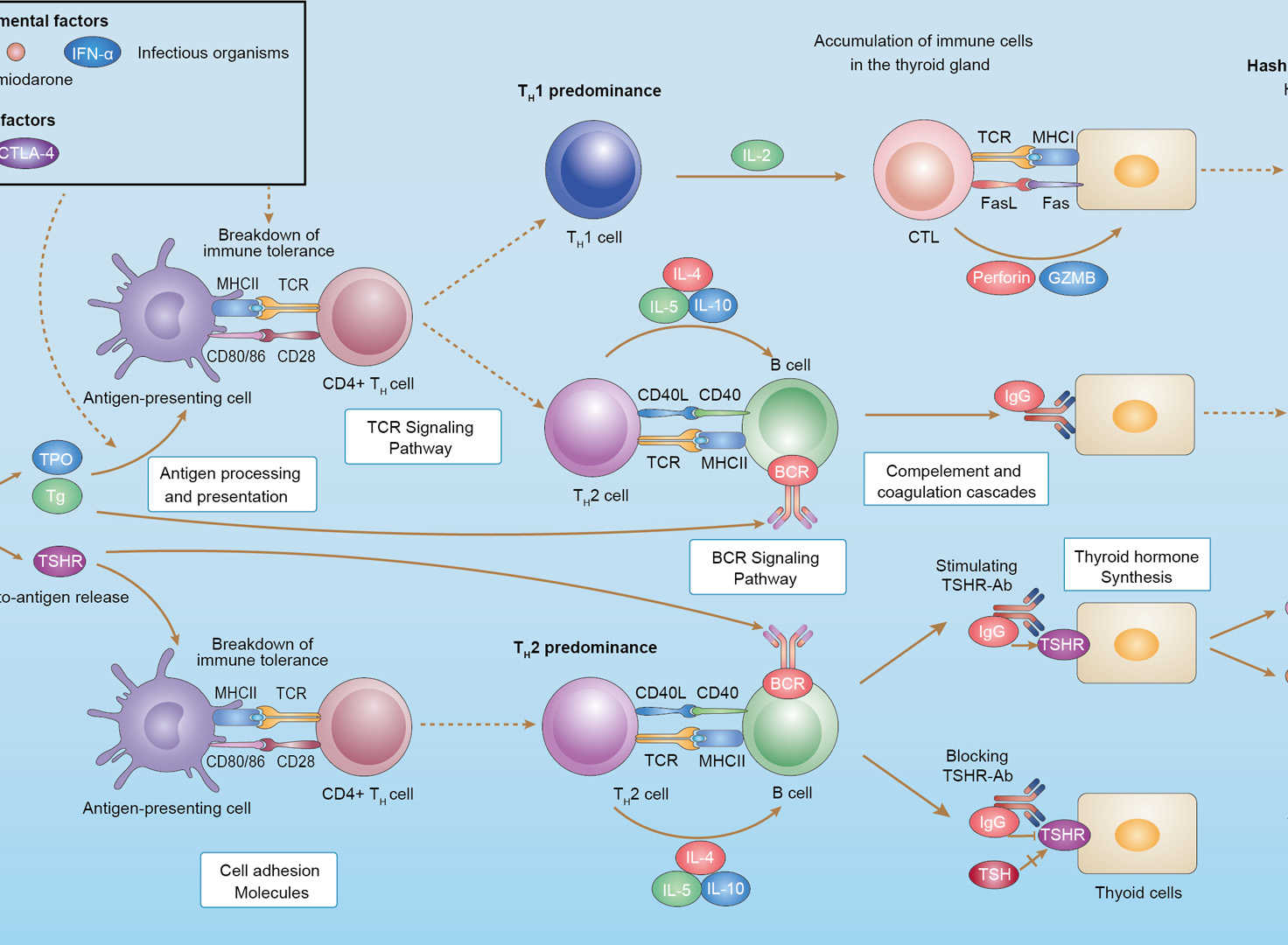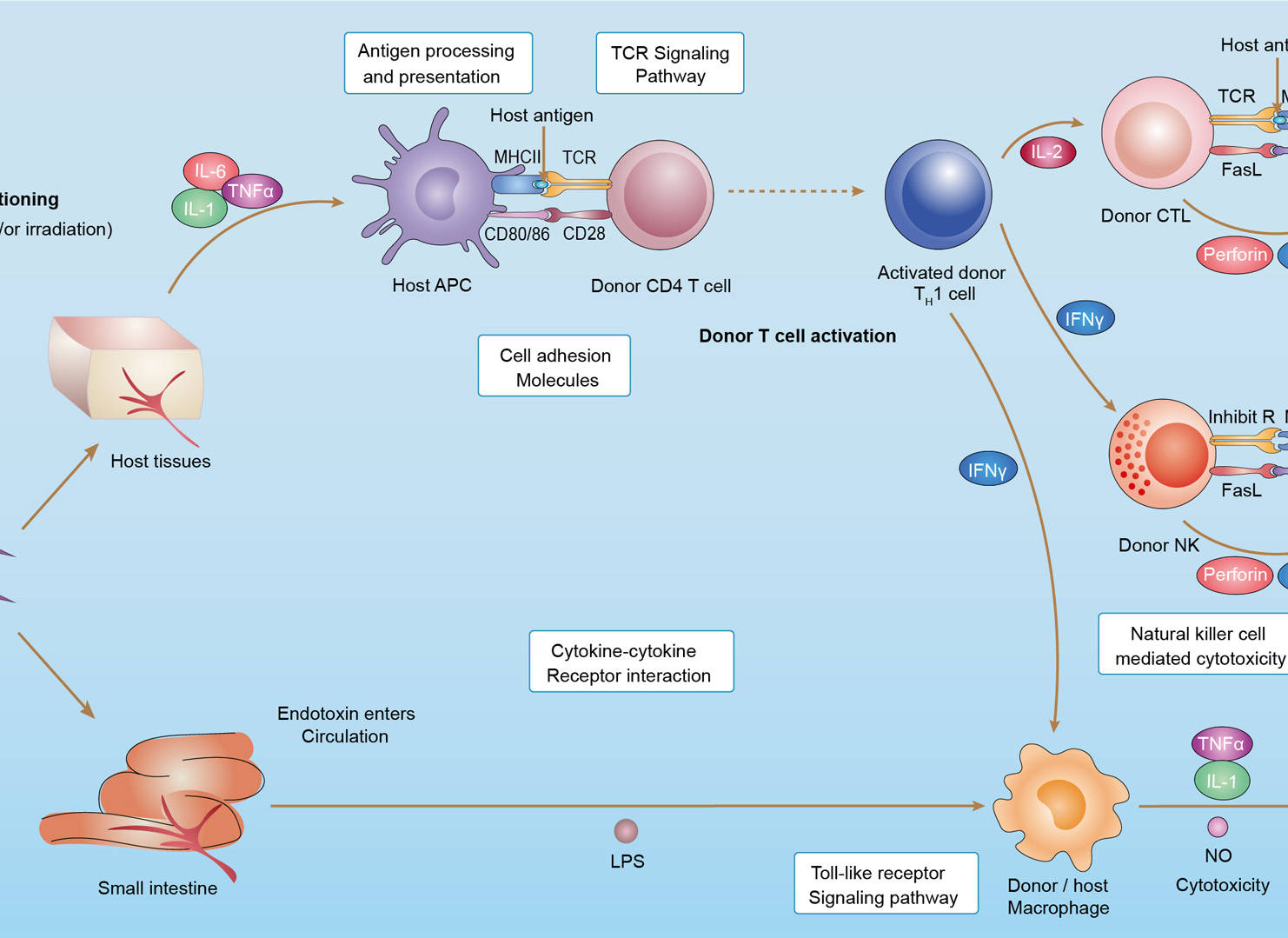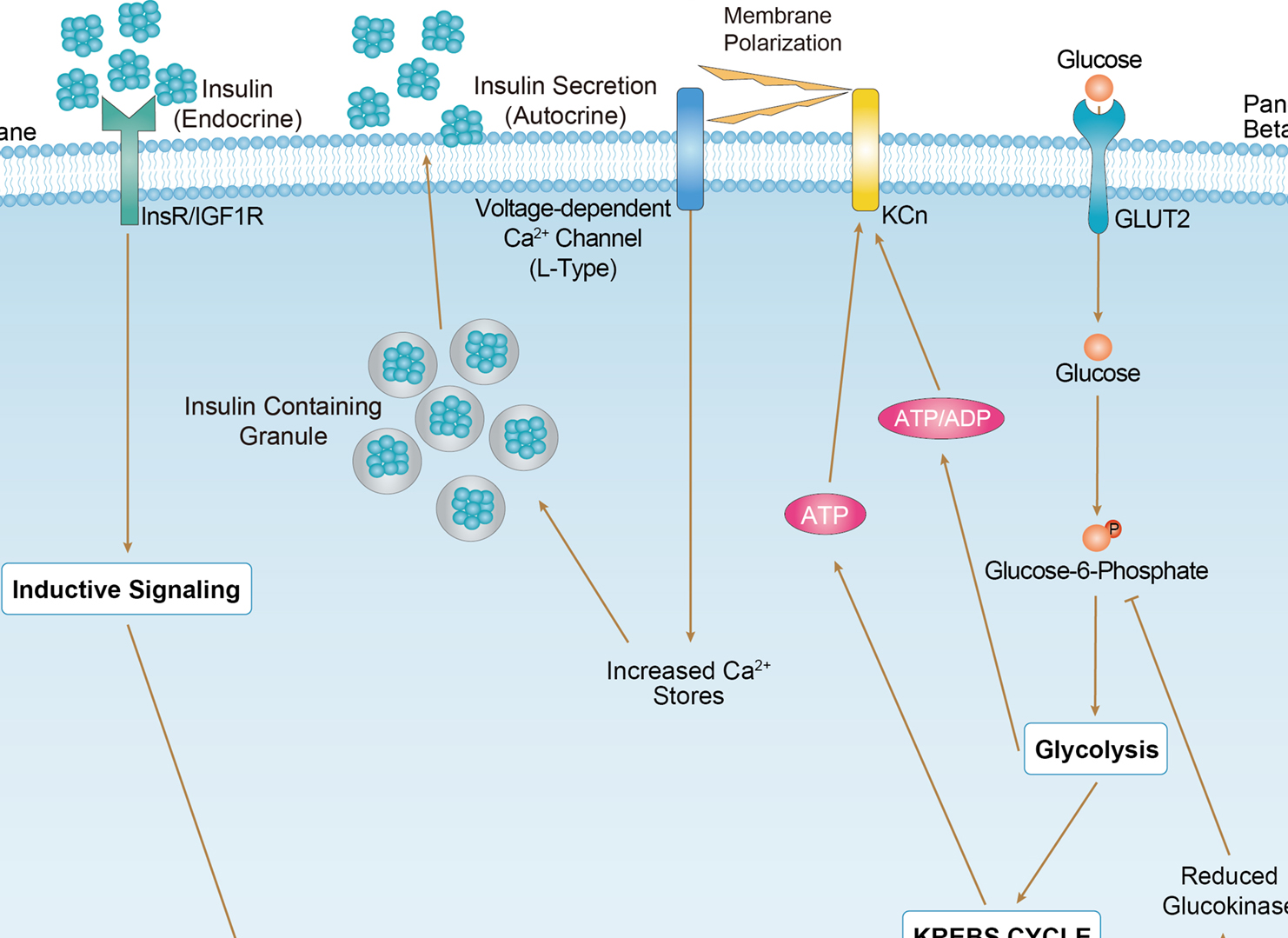 Loading...
Loading...

TNFα
Tumour Necrosis Factor alpha (TNF alpha), is an inflammatory cytokine produced by macrophages/monocytes during acute inflammation and is responsible for a diverse range of signalling events within cells, leading to necrosis or apoptosis. The protein is also important for resistance to infection and cancers. TNF alpha exerts many of its effects by binding, as a trimer, to either a 55 kDa cell membrane receptor termed TNFR-1 or a 75 kDa cell membrane receptor termed TNFR-2. Both these receptors belong to the so-called TNF receptor superfamily. The superfamily includes FAS, CD40, CD27, and RANK. The defining trait of these receptors is an extra cellular domain comprised of two to six repeats of cysteine rich motifs. Additionally, a number of structurally related "decoy receptors" exist that act to sequester TNF molecules, thereby rescuing cells from apoptosis. The crystal structures of TNF alpha, TNF beta, the extracellular domain of TNFR-1 (denoted sTNFR-1), and the TNF beta sTNFR-1 complex have been defined by crystallography. This article will review the structure/function relationships of the TNF alpha and the TNF receptor superfamily. It will also discuss insights as to how structural features play a role in the pleiotropic effects of TNF alpha.

-
- Species Reactivity: Human
- Type: Mouse IgG
- Application: WB
-
- Species Reactivity: Human
- Type: Mouse IgG
- Application: ELISA
Our customer service representatives are available 24 hours a day, from Monday to Sunday. Contact Us
Can't find the products you're looking for? Try to filter in the left sidebar.Filter By Tag
For Research Use Only. Not For Clinical Use.

 Allograft Rejection
Allograft Rejection
 Autoimmune Thyroid Disease
Autoimmune Thyroid Disease
 Graft-versus-Host Disease
Graft-versus-Host Disease
 Maturity Onset Diabetes of the Young
Maturity Onset Diabetes of the Young